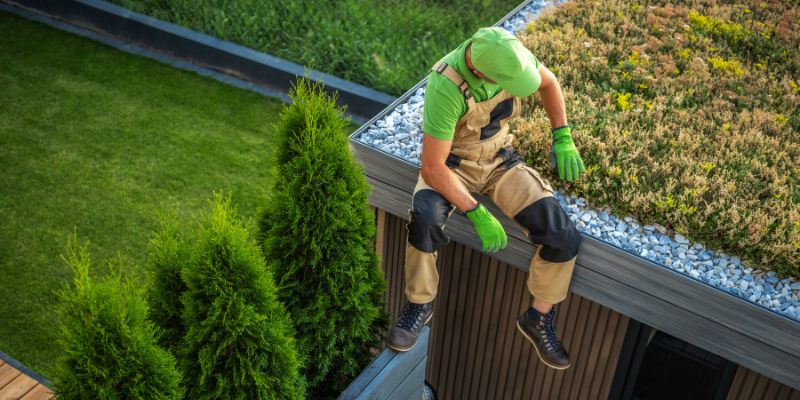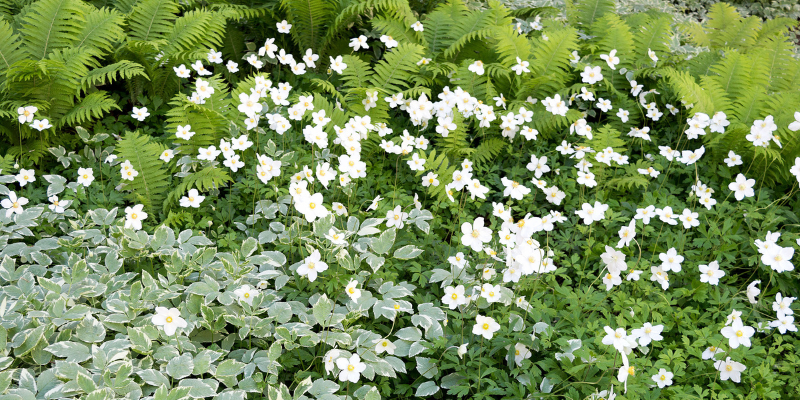As the need for more eco-friendly practices grows, sustainable gardening is having its moment. In this guide, we delve into the questions homeowners often ask us about sustainable gardening. We will explore eco-friendly techniques such as using green roofs, growing shade plants, and efficient irrigation tactics that can transform your garden into a sustainable paradise.
What is Sustainable Gardening?
Sustainable gardening refers to the practice of cultivating a garden in a way that minimizes harm to the environment. This includes the use of native and drought-tolerant plants, efficient water usage, soil management, and green innovations like xeriscaping and green roofs.
How Can I Make My Garden More Water-Efficient?
By choosing drought-tolerant plants, utilizing mulch to reduce water loss, and implementing an efficient irrigation system, you can drastically reduce water usage in your garden. Collecting rainwater for irrigation is also a surefire way to boost water efficiency.
Rainwater can be collected in barrels and tubs, or you can integrate rainwater capture systems into structures on your property through specific roof and overhang designs.
What Are Some Drought-Tolerant Plants, and Why Should I Use Them?
Drought-tolerant plants require less water to thrive. The best ones to use are often native to the region, which makes them more adapted to the local climate and soil conditions. Using these plants not only saves water but also encourages local biodiversity.
In southern Ontario, a few include:
- Coneflower (Echinacea purpurea)
- Black Eyed Susan (Rudbeckia hirta)
- False Indigo (Baptisia australis)
- Yucca (Yucca filamentosa)
- Butterfly Weed (Asclepias tuberosa)
- Switch Grass (Panicum virgatum)
- Juniper (Juniperus communis)
- Feather Reed Grass (Calamagrostis x acutiflora)
From this list, you’ll find sun-hardy grasses, flowers, and shrubs.
How Does a Green Roof Contribute to a Sustainable Garden?
A green roof, covered with vegetation, helps to reduce heat from buildings by providing insulation. This reduces energy use and mitigates the heat-island effect. Green roofs also manage rainwater and provide habitats for local wildlife.
Why is Soil Management Important in Sustainable gardening?
Healthy soil is the foundation of any garden. By tilling your soil to a specific depth and using mulch, you can regulate soil temperature, reduce erosion and water loss, and create a healthier environment for your plants to thrive.
What Are Some Good Shade Plants for Southern Ontario?
Shade plants are adapted to grow in less sunlight. Planting shade plants in suitable areas reduces the need for excess watering and can add biodiversity to your garden.
If you’re gardening in the Toronto area, consider these species:
- Canada Mayflower (Maianthemum canadense)
- Large-leaved Aster (Eurybia macrophylla)
- Wild Ginger (Asarum canadense)
- Ostrich Fern (Matteuccia struthiopteris)
What Are Garden Microclimates, and Why Do They Matter?
Garden microclimates are areas within your garden that have slightly different conditions compared to the overall climate. These variances can be due to factors such as sunlight exposure, wind, temperature, and moisture levels.
Understanding these microclimates will help you place plants in areas best suited to their needs, thereby reducing stress on the plants and lessening the need for additional resources like water and fertilizer.
What Are Urban Heat Islands, and How Can I Mitigate the Effect With My Garden?
Urban heat islands are phenomena where urban areas are significantly warmer than surrounding rural areas due to human activities. Planting trees and vegetation, using green roofs, and installing water features can help reduce this effect in your garden and throughout your property.
How Can I Sustainably Reduce Erosion in My Garden?
For sloped areas, using mulch can help reduce erosion naturally. Additionally, choosing plants that are suitable for these conditions, like certain ground covers, can prevent soil erosion and manage water run-off.
What is LEED®, and What Are the Benefits of Having a LEED® Certified Garden?
LEED® (Leadership in Energy and Environmental Design) is an internationally recognized green building certification system. It provides a framework for healthy, highly efficient, and cost-saving green buildings. A LEED® certified garden adheres to stringent guidelines for environmental sustainability.
The benefits of having a LEED® certified garden include reduced water usage, increased biodiversity, and enhanced resilience to climate change. Plus, a LEED® certification can increase property value, reflecting your commitment to environmental responsibility.
Commit to Sustainability with Lawrence Park Complete Garden Care
Ready to create a garden that combines beauty and sustainability? Lawrence Park Complete Garden Care is your trusted partner in developing LEED-certified, resource-conscious gardens.
In 2012, we made history, securing Toronto’s first Platinum LEED® Certification for a residential property. This is the highest level attainable for any landscape or building—a true testament to our commitment to environmental sustainability.
Let’s make a difference together. Contact us today to get started on your personalized garden care plan.

